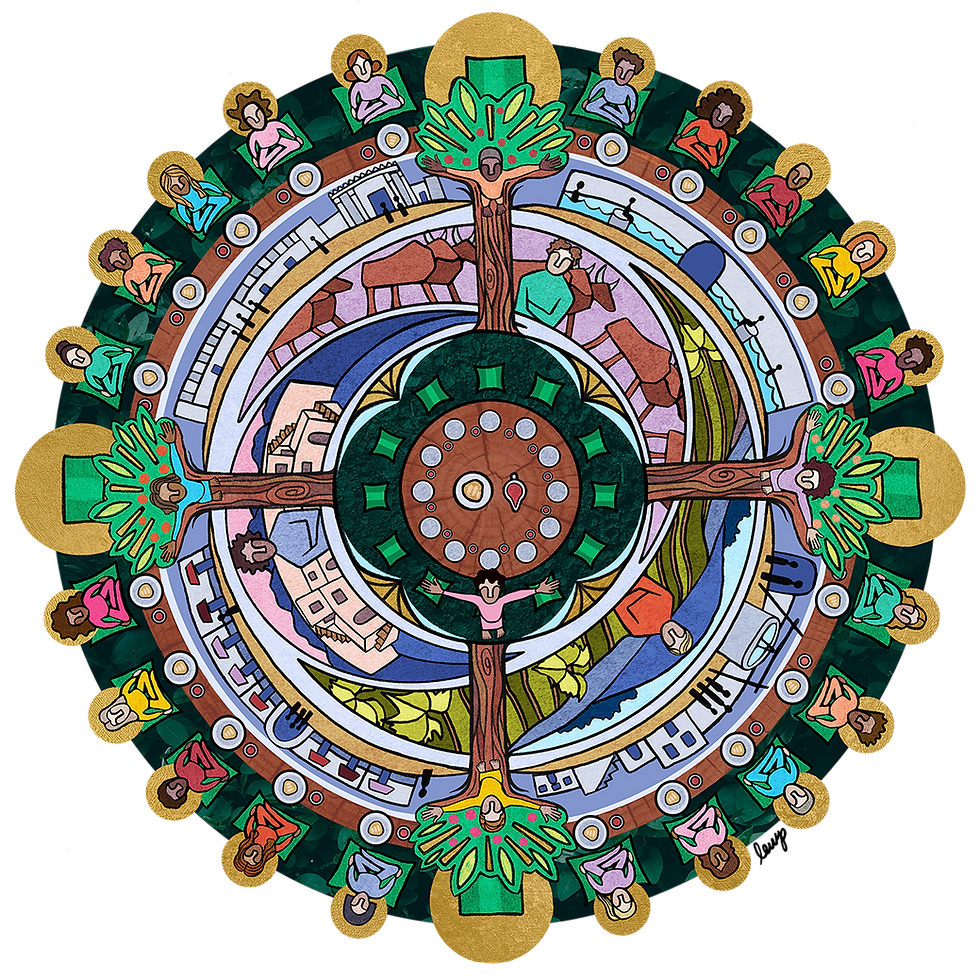The First Sin
- epgrace
- Jun 26, 2025
- 2 min read

This weekend we are skipping over one of the best known stories in all of Genesis.
There are several reasons for this. Key among them is that we will cover it one year during Lent. We also have limited time and I would rather spend most of it with our matriarchs and patriarchs.
But I want to take a moment to talk about the ominous and notorious story of "Original Sin."
Oh Genesis 3. How many pages of paper have been wasted by theologians waxing poetic about the horrors of the first humans' downfall.
Dirt-boy and Ishsha are enjoying their life in Eden river valley, communing with God, when the serpent enters the story. One of God's creatures pulled from the ground, this wily brute has legs, according to scholars and waltzes right up to Ishsha with tales of wonder and delight.
He offers access to all the vast knowledge of the universe to the child who has been born yesterday. Things she is not ready for. Enlightenment without learning and information without understanding can be very dangerous thing.
Everything all at once - but without the capacity to truly comprehend what she was perceiving.
And rather than listening to her divine parent who wanted to protect her from herself, to give her time to grow into the wisdom she could gain from this brave new world - she took the fruit and ate. She put herself in God's place, choosing her own way, instead of the insight God had laid before her.
Contrary to popular belief, the first sin was not disobedience.
That is what people say when they want others to remain obedient to them. It does make things far simpler. Forced subjugation always does.
The real first sin was idolatry. Putting something else in God's place. In this case, the woman put herself, her own desires and judgment in the place of God's.
How often we still fall prey to this same sin. How many things we still put in God's place. Even more so, our own thoughts, insights, and judgments that we would swear are God's own.
As we come to worship to learn about the second sin, may we be ever mindful of how we are called to always seek God's mind in how we think, speak, and live.
Blessings,
Rev. Janie
P.S. The fruit was most likely a pomegranate. Apples were not indigenous to the Near East. However, the word for apple in Latin, malum, is nearly identical to the Latin word for evil, mala. And the scholars back in the day enjoyed the joke.





Comments